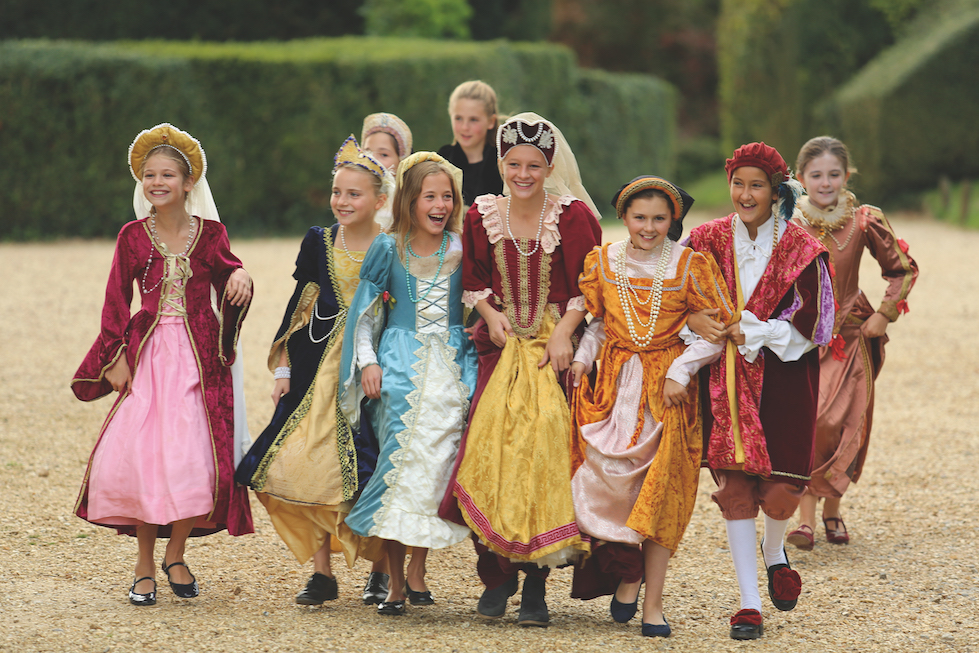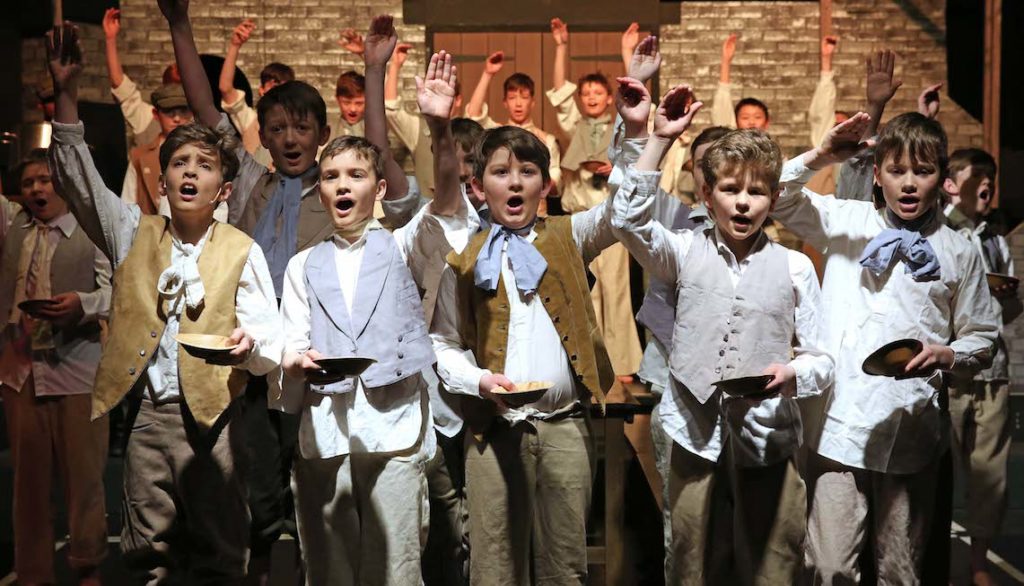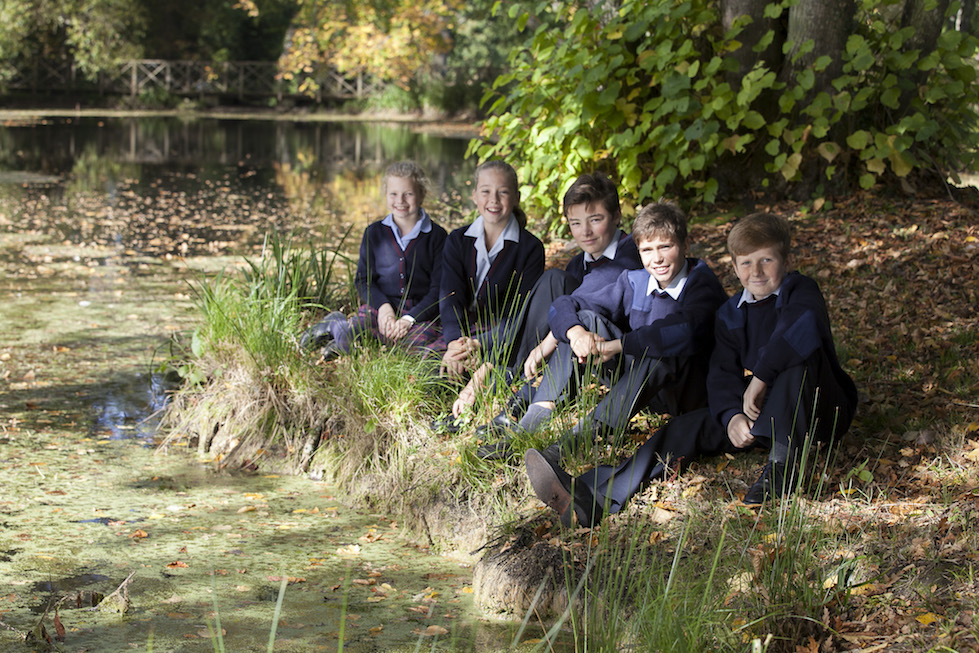PLEASE SIR, MAY I BOARD?
By
5 years ago

Boarding prep schools are rewriting the rules and the pupils are loving it, says Victoria Lambert

As a new generation of young boarders find their bunks and their feet at prep schools across the country, it is impossible to ignore the quiet revolution that has taken place in this most traditional of settings.
While past boarding prep school pupils left home at seven or eight, resigned to not seeing their parents or pets for several weeks at a time, with limited privacy and some quite bleak settings, modern children know and experience far better.
From flexi-boarding to FaceTime, safe spaces to homework support and twice weekly sporting fixtures where parents are invited for delicious tea afterwards, boarding prep school pupils are finding school fun as well as rewarding.
So what’s driving the new-style boarding preps?
The key change across the sector, says Mike Piercy, headmaster of The New Beacon School in Kent, has been in the development of pastoral responsibility. ‘It’s about carpets, curtains and care,’ he says. ‘Some would describe prep school boarding facilities akin to those of a hotel, but the key difference is the care. Boarding and pastoral staff are specialists and highly trained. They should exude warmth and kindness to children who are still young.’
Alex McCullough, headmaster at Perrott Hill Prep School in Somerset, agrees. ‘A happy boarding environment,’ says McCullough, ‘is one in which the child feels nurtured, supported and “at home” – like they’re a part of the family, or indeed, the furniture.’
Modern boarding houses are consciously cosy, but it is the warm family atmosphere of schools like Ludgrove and Horris Hill in Berkshire, Cothill House, Summer Fields and the Dragon School in Oxfordshire, Sandroyd in Dorset, Dunhurst in Hampshire and The Elms in Worcestershire that draw in many of their pupils. Often fires are lit in warm-panelled halls and dogs bound through libraries littered with comfortable bean bags. Lovely matrons dish out TLC alongside mobile phones for quick calls home, and then there is the space available, outside in the woods or in large facilities at schools like Port Regis in Dorset or Dulwich Prep in London, who run talent shows and comedy nights.

Boarding seems to be regaining its popularity as traditional prep schools have changed the rules, and while boarding numbers have declined nationally, this tends to only be within the younger boarders with many parents taking advantage of the year seven change over in the state sector and moving their children into boarding school for a couple of years in preparation for senior school. ‘Age 11 is a turning point with the end of primary education,’ says Piercy, ‘and with more schools offering 11+ boarding, whether in a traditional 13+ prep school or an 11 to 18 senior school. With many children changing schools at this age it is a good transition point.’
There is also a chance to discover if boarding is for your child in the longer term, says David Paterson, headmaster of the family owned and run Woodcote House School in Surrey. ‘I think 95 per cent absolutely love it. But it is not for everyone, and it is good to learn that early.’
Tom Bunbury of Papplewick in Ascot, where boarding is so popular that while not offered until year five, young boys are increasingly keen to try, agrees: ‘It is a great way to “ease” into the boarding ethos.’
But even at the junior end some heads are witnessing an increase in boarding. Tom Dawson, headmaster at Sunningdale School, Berkshire, says he has seen an increase in boarding at the junior end of school, particularly in boys from London families.
‘Parents recognise that children benefit greatly from the space and the time that a boarding school offers,’ says Dawson. ‘Pupils get so much time to spend with their friends doing the things they really enjoy, and this can take a great deal of pressure off parents.’
Duncan Bailey, headmaster of Cothill House, says that last year the school had its largest intake into year four for four years. ‘We remain full with a healthy roll of boys aged eight to 13,’ he says, adding, ‘parents recognise we know and understand boys; they see they are happy and relaxed.’
Paterson says that boarding schools are becoming more attractive again, not least as day schools become oversubscribed.
Another school with a strong family tradition, where a member of the Barber family has been headmaster since the 1930s, is Ludgrove School in Berkshire, which offers fortnightly boarding as standard. Alex McCullough adds there’s no doubt the way in which boarding is used by parents is changing. ‘There is a real appetite for flexi and ad-hoc boarding,’ he says.

Perrott Hill has very few full boarders, about ten, says McCullough, so the school really does become their home during term-time. ‘The one-to-one support the children get from our dedicated staff is outstanding.’ And that figure belies the number of their friends who are sleeping in dorms at least once a week as well. ‘We have 64 beds in total,’ says McCullough, ‘lots of weekly and flexi-boarders and a thriving activities programme so there is always lots going on.’
Even schools who pride themselves on their full-boarding ethos extol the advantages of boys learning together; one it has to be said is well supported by their outstanding common entrance results, have capitulated a little to modern standards. In another day, boys might not see their parents for a month or more; now its more likely to be three days, with the opportunity to go home almost fortnightly. Parents are warmly encouraged to attend Wednesday and Saturday matches. A spot of tea off campus is often condoned, even encouraged.
With so much else changing, it might be surprising to some that single sex boarding is still in favour. But Mike Piercy points out, ‘the benefit of boarding at prep extends the benefit of an all-boys’ education.’
‘Not always the most organised, self-disciplined or self-sufficient young boys benefit from a school structure which inculcates these skills,’ he explains. ‘Supervised homework and music practice relieve domestic pressure and develop independence. Then there is the company of friends, developing social skills, working and living as part of a community.’
There are far fewer ‘girls only’ boarding preps: two of the best known are Hanford and Knighton House, ironically only a lacrosse ball’s throw away from each other in Dorset. Why just girls? ‘Without the pressure, social distraction and anxiety that a mixed environment can sometimes bring, girls develop at their own pace,’ says Knighton House’s headmaster, Robin Gainher.

A best of both worlds could be found in Marlston House, Berkshire, a girls only prep school, twinned with Brockhurst House, the boys’ counterpart. The two schools share not only a headmaster, David Fleming and deputy head, Bronwyn Raeburn-Ward, but the same large estate as well.
There are opportunities to share activities, but Raeburn-Ward points out that Marlston is an equal player to Brockhurst, saying: ‘Opportunities for girls in their personal, social and academic lives have never been greater, but they need to develop the right skills at school to take full advantage of them.’
While being family run means the school is smaller than some, Woodcote’s Paterson is proud to point out that no boy can ‘fall through the cracks’. ‘We know them and the parents well. No one gets ignored or forgotten. This close relationship pays off most crucially when advising parents on which senior school their son should move to because of the level of trust.
‘It’s a very personal service. We can guide parents to the right school for their boy.’
Recognising the close relationship and community that can be established through boarding, there are some schools that even step up the boarding around exam time. Bruern Abbey in Oxfordshire, which specialises in putting boys with dyslexia into mainstream senior schools, typically buses their pupils to and from London on Friday afternoons and Monday mornings, closing the doors completely for the weekend, except for the last few weeks prior to common entrance when year eights hunker down, forming strong bonds with their fellow applicants, bolstering each other during a challenging time.
There are changes that go beyond style of boarding too. ‘An unusual, though perhaps not unique, element of our boarding is a degree of democracy,’ says Mike Piercy. ‘At the end of the school day, that night’s boarders meet with the housemaster and decide the routine for the evening: Prep or play first? Sports hall, AstroTurf or quiet time in the boarding house?’
Our curriculum has evolved, says Cothill House’s Duncan Bailey. ‘Mindfulness is now a part of the weekly curriculum, for example. Technology provides educational opportunities – the boys love learning through our virtual and augmented reality headsets and it has helped them understand important topics, such as life in the WW1 trenches, in new ways.’
Yet that doesn’t mean junking tradition. Dawson explains: ‘Traditional does not have to mean draconian. At Sunningdale, “traditional” refers to our values and the things we believe are important, such as kindness, hard work, good manners and zest for life. We can still have all of these things and still adapt to a changing market.’
At the Dragon School, children can contact their parents via email and phone, but the school also upholds the important boarding tradition of a weekly letter home.
In North Yorkshire, Aysgarth School fosters values such as independence and community, while also preparing children for life after school ends altogether.

Headmaster, Rob Morse, explains, ‘Independence might be the greatest gift we as parents can give to our children. At boarding prep school, pupils are required to take responsibility for their actions and choices and, because parents are not there to shield them from natural causes and effects, the children will experience both success and failure in a controlled environment.’
Tom Dawson thinks the bonds the pupils make at Sunningdale are one of the key advantages. ‘In a questionnaire about remote learning that we have sent out during the enforced COVID-19 isolation period, the things they miss the most by far are their friends. They love being able to see them on screen, but that cannot replace being able to go outside whenever they want to kick a football, bowl in the nets or just run around.’
Bunbury adds: ‘The key factor is that our boys are happy, which of course reflects in their academic results at the end of the day.’
For parents, that equals job done – however much they might miss their children at night.
This article was originally published in the Autumn/Winter 2020 issue of School House
READ MORE | Musical Independent Schools



